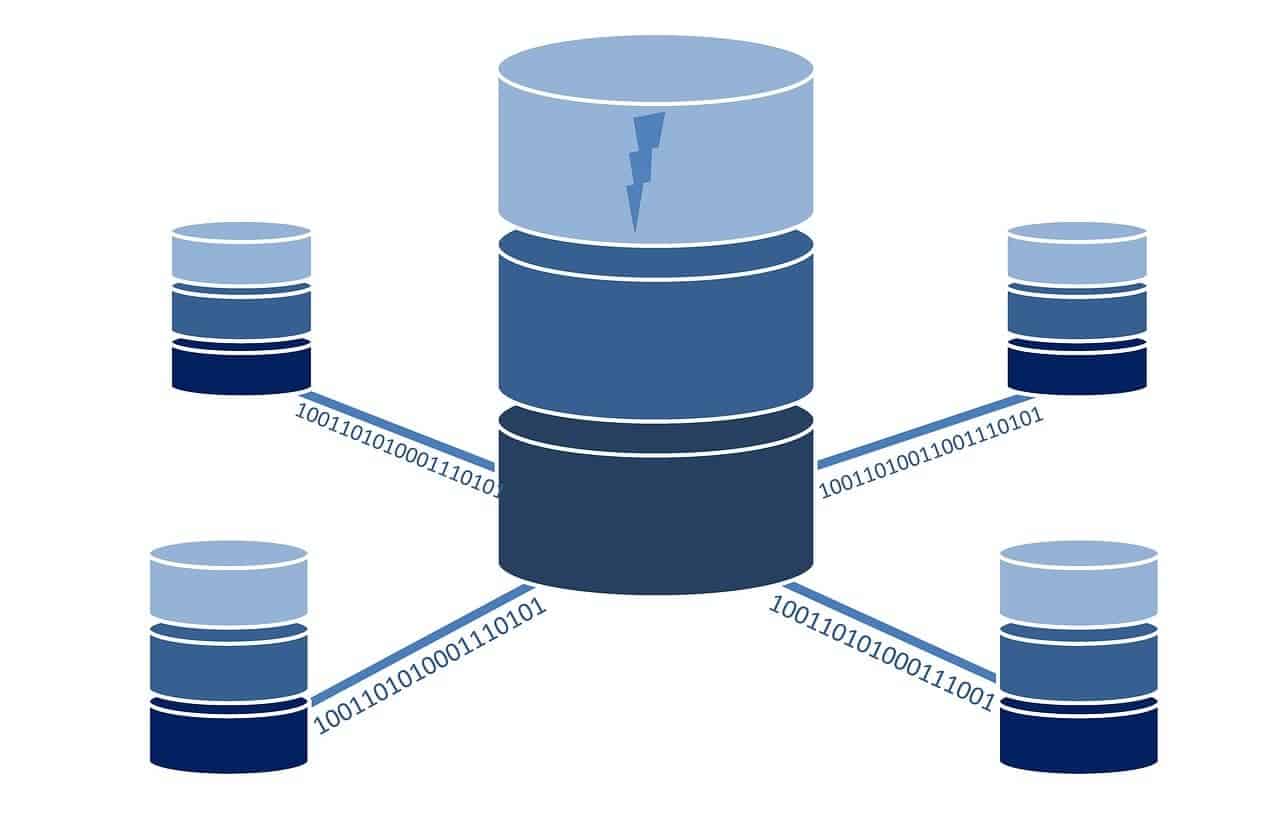Are you a recent business graduate looking to change careers? You can successfully move into a profession in information technology if you are well-prepared and have the correct attitude (IT). The demand for IT workers with solid business experience increases as technology advances. An IT job is best for you if you have strong analytical capabilities, problem-solving skills, and a passion for technology.
This article will cover how graduates of commerce programs can transfer into an IT career. We will talk about being ready for an IT job, the skills and credentials required, the career prospects available, and the benefits of switching. When changing careers, there are many crucial issues you should think about. Let’s start now!
Getting Ready for a Career in IT:
Obtaining the required experience is the next step toward an IT career after receiving your business degree. Internships and co-op positions are the most effective ways to accomplish this. Several organizations provide IT training and internships in the industry. To be a successful applicant for any IT position, it is critical to accumulate real-world experience.
Enhancing your skill set is the next step. It can be accomplished through online training programs or certificates in coding, network security, or software development. To make yourself more marketable, you can also specialize. Your appeal to potential employers will increase as you exhibit additional abilities and expertise.
Finally, networking and developing relationships are crucial parts of getting ready for a career in IT. To keep up with the shifting scene, check out job ads, attend industry events, and join professional associations. You can gain a competitive edge by connecting with industry leaders and learning about recent developments.
Background in Education:
Learning more is one of the keys to switching from a business degree to an IT career. Consider enrolling in courses with a focus on IT and related disciplines. Programming and software engineering courses are examples of these and more broad IT subjects like network security and systems design.
Even if you did not major in information technology in school, technical abilities like scripting or coding are still helpful. Trustworthy organizations’ certifications can also help boost your credentials and ease the move.
Developing a Work Experience:
With some relevant job experience, it is feasible to bridge the gap between two sectors that, at first glance, appear unrelated, such as technology and business. While your business degree gave you the fundamentals of business management, you might choose to concentrate on jobs that let you combine your academic and practical skills.
Examples include project and product management jobs, marketing, sales, or customer service. You can learn about the information technology (IT) sector through these positions and how to work with technology and data. If employment prospects exist, you can get the necessary experience by participating in internships and entry-level IT positions.
Employment Possibilities:
Those with a business degree and an interest in IT have many professional options. The most well-liked careers are management, software engineering, programming, and computer system analysis. Due to their capacity to integrate organizational, economic, and strategic talents, management positions frequently appeal to persons with prior expertise in the business.
Software engineering positions frequently entail creating, testing, and maintaining software for businesses, whereas programming positions focus more on coding and development.
Finally, it is the job of computer system analysts to evaluate the system to identify its needs and suggest improvements. A background in business can be a huge help in these professions because they all provide different obstacles.
Analysis and Management of Data:
A degree in business gives you the groundwork to work in information technology (IT). Learning how to organize and analyze data effectively is one of the critical methods to accomplish this. One must have a solid grasp of mathematics and the capacity to interpret numbers to assess the consequences of data patterns.
Your knowledge of accounting and finance and ability to work with the data utilized in IT applications will already be acquired if you have a degree in commerce.
Comprehending data structure and database administration fundamentals in data management is crucial. For IT professionals beginning a career in IT, having a thorough understanding of the foundations of data management is crucial.
You’ll be in a fantastic position to utilize your knowledge to succeed in an IT career if you have a degree in commerce because you’ll also comprehend the fundamentals of managing IT systems.
Intelligence and business analysis:
Business Analysis and Intelligence are only two IT occupations that can benefit from the knowledge gained with a degree in commerce. Complex data analysis skills are necessary for this sector to use the data to guide business decisions.
A degree in commerce equips graduates with the expertise and information needed to identify trends, formulate action plans, and build data-driven solutions. You can assess the economic effects of changes to the IT landscape using your finance, accounting, and economics knowledge.
Professionals in this field can use data to support their decisions and grasp the financial implications of their actions. Business Analysis and Intelligence require you to be proficient in the most recent analytics trends, use data to pinpoint issues, comprehend the financial underpinnings of IT solutions, and interact successfully with other business stakeholders.
Management of IT projects:
The best path for commerce graduates to enter the IT industry is to gain expertise in project management. An IT project manager is in charge of planning and supervising a project’s whole lifecycle to ensure it is completed on schedule, within budget, and per the specified requirements.
Since graduates from the business field frequently have a strong foundation in project management principles like planning and budgeting, they can quickly apply these abilities in an IT context.
Be careful to emphasize your prior relevant experience and prowess while applying for IT Project Manager roles and your management of competing goals, budgets, and timelines. Consider enrolling in a long-term IT project management training course to strengthen your capacity to handle IT projects.
Graduates in commerce with the necessary education and experience can establish their expertise in the area and obtain positions in IT project management.
Development of software:
A job in software development can be an excellent choice for those with a degree in business and an interest in the IT industry. Designing, creating, testing, and managing software programs are all parts of software development. Successful software developers combine technical, analytical, and communication skills.
Learning the fundamentals of programming languages like Java, Python, and HTML is the best way to start a career in software development. Learning about software lifecycle management technologies and software development methodologies like Agile or Waterfall is also essential. With these abilities, you will be able to get employment as a software engineer in a variety of enterprises and industries.
Whether it’s through internships or employment in the IT industry, gaining professional experience is quite advantageous. Another excellent way to get practical experience is by participating in software development projects and collaborating with other team members.
Lastly, keeping up with industry trends and advancements can be accomplished by attending pertinent conferences and seminars, such as those provided by the Association for Computing Machinery.
Management of databases:
A database administration career may be an excellent fit for those with a commerce background. The management of data storage, security, and integrity is under the purview of database administrators. As a result, you must be knowledgeable about the mechanics of data storage, storage architecture, and data security requirements.
You need to be well-versed in the foundations of database management systems like SQL, Oracle, and others if you want to excel in this industry. A solid understanding of system administration, scripting languages, and data security is also advantageous. You must also have good analytical and problem-solving skills to recognize and resolve potential problems.
You can use your business expertise and obtain the essential technical abilities to use your degree to launch a database administration career in IT.
Additional Factors:
It’s crucial to remember that there are additional considerations when switching from a job in commerce to one in information technology. Soft skills, industry expertise, and technological knowledge are a few.
Also, it might be helpful in the IT industry to understand business procedures like accounting and budgeting. Although technology trends constantly change, staying current with them is critical.
Networking and interacting with industry experts is the last technique to gather information and understand. A successful IT career is possible if you consider all of these factors.
Networking:
is a priceless resource for anyone wishing to start a career, including those in the IT sector. Since you studied commerce, you may already know the value of networking and developing business contacts. If not, understanding and utilizing networking possibilities is crucial to starting a successful IT career.
Networking can be done in various ways, such as through social media, job search websites, online forums, and career fairs. Regardless of your approach, be sure to take advantage of any chance you get to network with individuals in the IT sector, including recruiters, mentors, and business executives. These tools are crucial to networking, gaining the skills and contacts to land your desired career, and establishing partnerships.
Be prepared, knowledgeable, and professional when networking. Make sure to portray yourself in the best possible way and act in a responsible and welcoming manner. Remember to complete your homework and prepare answers to inquiries about your background, talents, and expertise. That will guarantee that you leave the best possible impression on potential employers.
Technical Knowledge:
More than a degree in commerce may be required for some technical abilities frequently needed for IT professions. Therefore, it is strongly advised for anyone considering a career in IT to broaden their technical skill set.
Various job roles may call for diverse skill sets, but some frequent ones include knowledge of databases, networks, operating systems, and programming languages.
Competencies in hardware, software, and applications are also beneficial. With an understanding of programming languages like JavaScript, HTML, and CSS, familiarity with front-end and back-end web development and design is a highly desired ability.
A fantastic strategy to show a potential employer the amount of technical capabilities a person possesses is to create a good portfolio highlighting their abilities and accomplishments in these technical areas.
Keeping Up to Date:
It takes consistent work to go from a business degree to an IT position. Staying current on the most recent technological innovations is crucial because it develops swiftly. Fortunately, there are many ways to maintain your talents.
Several courses on various topics relating to IT and technology are available online from resources like Coursera, Udemy, and Lynda. Also, you can network with business people and keep up with the most recent trends by attending conferences and industry events.
While these organizations give their members access to resources and data linked to the IT industry, consider joining one IT-related professional group. Last, remember to benefit from your peers’ expertise and experience since many are employed in the field and may offer insightful advice.
You can ensure you’re prepared to take advantage of the chances that come with an IT career by making a serious effort to keep up with the most recent IT trends, tools, and innovations.
Benefits of Changing Your Commerce Career to Technology:
Concerning career advancement opportunities and financial incentives, switching from a commerce career to an information technology career has many advantages. Concerning career development, IT offers a variety of dynamic and developing jobs to pursue. It allows people to continuously learn, explore, and grow—from creating new software and services to analyzing massive data systems.
IT professionals often earn more than their counterparts in other industries and frequently receive excellent retirement and benefit packages. It may be particularly appealing for those seeking a more lucrative way to use their expertise. It’s the perfect time to switch from a commerce degree to an IT career because of the continued growth of the global IT business.
Factors To Take Into Account Before Changing Careers:
Considering a career move is crucial before deciding how it will affect your present circumstances and potential work opportunities. Make sure the change is advantageous and practical by conducting the study. Consider whether you would be better off sticking with your current course or moving if you genuinely wanted to make it.
Think about the benefits and drawbacks of changing careers. What are the advantages this move might have for you? Will it raise your future income? Will you be able to apply your existing abilities, or will you need to pick up new ones?
The expense of changing careers is something else to consider. Will you be required to return to school? Do the changes come with any costs or legal obligations? Will you require any further education or credentials? It would be best if you also thought about how the shift can affect your financial condition and way of life. Will you have to change your location or your way of life in any other way?
A career transition is a significant endeavor that should not be undertaken carelessly. Spend time carefully weighing the advantages and cons while considering your long-term objectives and aspirations.
I also switched from B.Sc Chemistry and L.L.B to Database Administration field. Present I am living very successfully life. Go ahead and take your decision.























